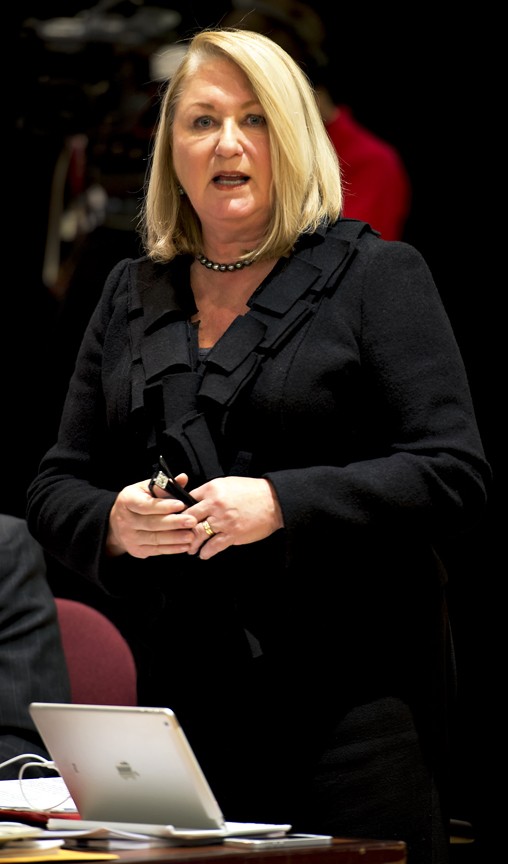Current UA students will have the option to pay guaranteed tuition, a set tuition for eight consecutive semesters, starting this fall. The Arizona Board of Regents approved the guaranteed tuition program Thursday morning before it set the three state universities’ tuition for the 2014-2015 academic year.
The guaranteed tuition program was modeled after Northern Arizona University’s Pledge Program and will guarantee students a set tuition cost for four years. The set tuition rate is higher than the proposed tuition increase for current students who choose not to join the program because it takes into account year-to-year increases. The new program will be mandatory for incoming freshmen.
The board passed the UA’s proposed 2 percent tuition increase for resident graduate and undergraduate students and 5 percent increase for non-resident graduate and undergraduate students. The guaranteed tuition program will add an additional 4 percent increase to the base tuition increases. The program won’t be offered to graduate students.
UA President Ann Weaver Hart said UA administrators carefully ran economic models to ensure the additional 4 percent on guaranteed tuition was as close as possible to predicted annual increases in higher education costs. The additional money from the guaranteed tuition will not be spent the year it’s received, but will be saved to make up for the yearly projected increases.
“We absolutely are committed … to [making] sure that the payments received from the guaranteed program are sequestered so they are available for the third and fourth years of that guarantee,”
Hart said, “and that we don’t have the empty-the-checkbook mentality every month that would make that less sustainable.”
Student Regent Valerie Hanna, a political science junior, said she was glad to see the regents approve guaranteed tuition, a program that students were heavily involved in from the beginning.
Student leaders from the Associated Students of the University of Arizona took the idea of guaranteed tuition to Hart last fall semester and worked with administrators to create the policy, Hanna said.
“It was really exciting for me to watch them craft this policy and put so much thought into it,” Hanna said.
Student leaders also campaigned on the UA Mall, telling students about guaranteed tuition, gathering petition signatures and answering questions for students, Hanna added.
At Thursday’s meeting, the regents also raised concerns about student loan debt and discussed the federal government’s proposals to reduce student loan debt. Regent Anne Mariucci said that because of the lack of state funding for higher education in Arizona, the regents should contribute to the discussion about how to reduce student loan debt at the federal level.
“I think that we’re in a very unique spot to be able to contribute great thinking on that because of our unique situation,” Mariucci said.
Regent Mark Killian complimented the three university presidents for doing well in their tuition recommendations despite limited resources. Killian also showed concern for the continuing tuition increases.
“I think the frustration is growing because there’s an awful lot of people that support education,” Killian said. “I think they’re frustrated because they don’t have the financial resources to be able to do some of the things they want to do.”
Rick Myers, chair of the Arizona Board of Regents, said while increasing tuition is always difficult on students and families, he was pleased that the UA put the program in place to provide more certainty for students.
“I do wish that the state was in a situation where [it] could provide more financial aid for our students and more funding to help offset the cost of education,” Myers said. “The state Legislature is not able to do that at a significant level, so I feel good that we’re able to have modest tuition increases.”









